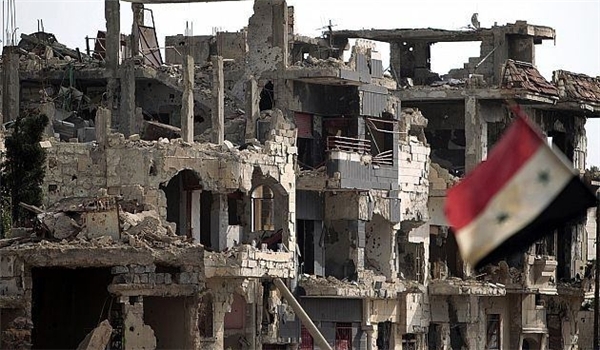
RNA - The cessation of hostilities drawn up by Washington and Moscow only came into force on Monday but is already showing cracks, according to Russia’s Military Spokesman Igor Konashenkov, who made the criticism in a statement released on Thursday.
Konashenkov slammed the US for "rhetorical fog" intended "to hide the fact that it is not fulfilling its part of the obligations,” complaining that the US-backed opposition groups are mounting their attacks on residential areas in the Arab country.
It means what it means. The ceasefire has failed (technically) because opposition attacks are violating the agreement – even though Russia and the Syrian government have respected their commitments from the first minute that the cessation of hostilities began.
The deal's initial aims, which includes allowing humanitarian access and joint Moscow-Washington attacks against terrorist groups such as ISIL and Fatah al-Sham (formerly known as the Al Nusra) Front, are also in jeopardy. Syria is not facing a violation of the truce. Syria is facing a complete nullification. Worse yet, there are no signs of any preparations for peace talks, as Washington refuses to separate the so-called moderate opposition from terrorists.
The recent escalation by rebel forces has only deepened suspicions of Washington’s intentions:
-This new truce is supposed to be different, with the US demanding all of its rebel proxies to totally cut ties with Nusra – an Al-Qaeda affiliate. Sources within the Syrian military, however, say that so far there is no sign of that happening.
-Throughout the war, the rebels have often relied on Nusra to do the heavy lifting in joint offenses, and have long resisted the idea of splitting with them, claiming it amounts to a Russo-Syrian plot to divide the rebellion. The big problem here is that Washington is still supporting this narrative, instead of demanding the split.
-Assuming the US follows through with its promise to engage in joint attacks with Russia against Nusra, they may quickly find that distinguishing between “Nusra targets” and other rebels is not so easy.
-The war on Syria is a regime change operation, just like Libya and Iraq. The US is involved in this conflict for all the wrong reasons, the foremost of which is gas. The war began not in 2011, but in 2009 when President Assad rejected a Qatari plan to transport gas from Qatar to the EU via Syria. Fortunately, Syria - with the help of Iran, Hezbollah and Russia - has fended off the colonial effort to oust President Assad and install a US puppet.
Considering the above and reading the tea leaves, if the current truce collapses, as is likely, Western policymakers will be left with a few unrealistic options:
Continue to seek a political transition that will require a war of attrition that could last for many more years. The likelihood is that in this scenario we will see a growing confrontation between NATO and Russia. Or divide Iraq and Syria on identity-based lines, which is out of question.
The United States and its client states are currently stuck indecisively seeking the above-mentioned outcomes that are destined to fail and have even created a needless confrontation with Iran and Russia. The current ceasefire is laudable, but once the war resumes, the regime changers will need a much more realistic approach to save face and to catalyse real negotiations: Stand back while Russia and Iran help the Syrian Army retake the remaining parts of the country that are still under the control of terrorist groups and extremists.
This is the best option the regime changers currently have. It also reflects what most of the international civil society is thinking. The War Party and its client states have to make a choice now. If they don't resolve the Syrian mess diplomatically where it is, it might come to them, as the refugee crisis shows.
111/847/C